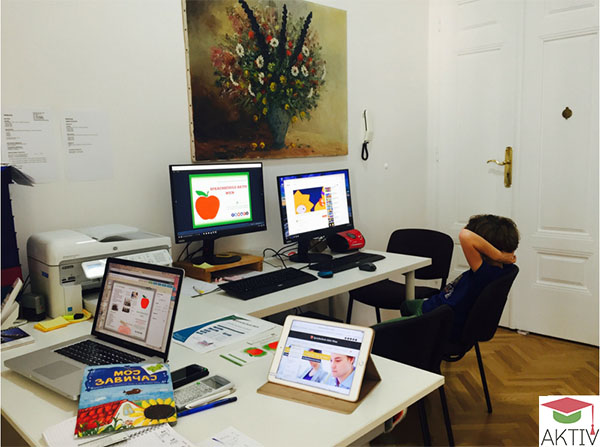German Subjunctive II (Konjunktiv II) – how to form it, and practice
Subjunctive II is a specific case in German grammar which is often used, and with different meanings. But don’t panic! We’ll look at it in a moment. In the following post you’ll find how to form the Subjunctive II in the present and the past tense, accompanied by helpful examples.
How to form the Subjunctive II
The Subjunctive II has two different forms in the present tense – the original form and the replacement form.
Subjunctive II in the present tense
- Original form
Building the Subjunctive II in its original form isn’t so difficult:
Replace past tense + umlaut (for the vowels a, u, o) or the ending -en away from the infinitive form and by the ending -te (if there’s no umlaut).
In the first and the third person singular, an –e is added and then the original form is finished:
können – könnte
müssen – müsste
dürfen – dürfte
wollen – wollte (no umlaut)
sollen – sollte (no umlaut)
To illustrate this example here is the conjugated form of können in Subjunctive II.
ich könnte
du könntest
er/sie/es könnte
wir könnten
ihr könntet
sie könnten
But, actually, you don’t need to use this form very often. In German we use the original form mostly in literature and whilst speaking – especially when asking politely, or expressing wishes or giving advice. For example:
Ich hätte gern ein Auto. – I would like a car
Er wäre ein guter Lehrer.- I would be a good teacher
Könntest du mir helfen? – Could you help me?
Ich müsste morgen eigentlich arbeiten – I actually have to work tomorrow
Dürfte ich Ihre Tochter heiraten? – May I marry your daughter?
Ich wollte, ich wäre ein Huhn. – I wish I were a chicken
Du solltest weniger rauchen. – You should smoke less.
Several exceptions also apply, such as:
wissen – wüsste
kommen – käme
gehen – ginge (no umlaut)
Examples:
Ich wüsste gern mehr über Kunst.
Eigentlich käme der Bus um 10 Uhr.
Für mich ginge auch ein Termin am Mittwoch.
But the use of the original form with these verbs isn’t obligatory, because it sounds too formal. All other verbs are mostly built with the replacement form. And that’s very easy.
- Replacement form
For the replacement form of the Subjunctive II we need a conjugated form of ‘werden’ in its Subjunctive II form and in the infinitive, also ‘würde’ + infinitive. And that’s all!
Examples:
Ich würde am Wochenende so gern nach Salzburg fahren.
Sie würde gern in Österreich Deutsch lernen.
Er würde gern ein Auto kaufen.
Wir würden dich jedes Jahr besuchen.
Du würdest zwar gern morgen draußen schwimmen, leider ist es sehr kalt und es geht nicht.
Wann würdet ihr morgen kommen?
Think about the sentence structure: ‘würde’ comes in the main clause in position 2, and the infinitive comes at the end.
Subjunctive II in the past tense
The building of Subjunctive II in the past tense functions almost like the normal perfect tense. Only the forms of ‘haben’ and ‘sein’ have to be converted into the Subjunctive.
Examples:
‘Normal’ perfect:
Ich habe gestern ein grünes Auto gekauft.
Ich bin gestern nach Italien geflogen.
The same sentences in Subjunctive II in the past tense:
Ich hätte gestern gern ein grünes Auto gekauft.
Ich wäre gestern gern zum Deutschkurs gekommen.
Now you can use the Subjunctive II in the past tense!
Here, those verbs that have already been formed in the perfect with ‘haben’ have also been formed in the past in Subjunctive II; those who are already formed in the perfect also take past Subjunctive II as a form.
Here those verbs which are already formed in the perfect with ‘habe’ are also formed with Subjuncitve II in the past. Similarly, those verbs which were formed in the perfect with ‘sein’ are also formed in Subjunctive II with ‘sein’.
Further examples:
Hätte ich doch nur mehr geübt, dann wäre die Prüfung für mich einfacher verlaufen.
Wäre ich früher aufgestanden, hätte ich den Bus nicht verpasst!
Hättest mir dich nur schon gestern gesagt, dass du heute ausgehen willst, dann wäre ich mitgekommen. Jetzt bin ich leider schon verplant.
Another thing: The Subjunctive II only has one past tense – no plusperfect or Präteritum. Useful, isn’t it?
Exercises Subjunctive II:
Put the verbs into the Subjunctive II, in the present or the past.
- a) _________ (Können) du mir bitte das Salz reichen?
- b) Wenn du noch einmal 18 _________ (sein), was __________ du __________ (tun)?
- c) __________ ich das vorher __________ (wissen), __________ ich anders __________ (entscheiden).
- d) Was __________ letztes Jahr __________ (sein), wenn du ihn nicht __________ __________ (treffen)?
- e) Bezüglich morgen: Wenn es __________ (geht), _________ ich gern um 20 Uhr __________ (wegfahren).
Answers: a) Könnten; b) wärst, würdest … tun; c) Hätte … gewusst, hätte … entschieden; d) wäre … gewesen, getroffen … hättest; e) ginge, würde … wegfahren.
If you’d like to practice more exercises with the Subjunctive II, and improve your grammar and spelling in a group, then join one of our German courses!














